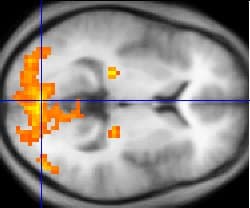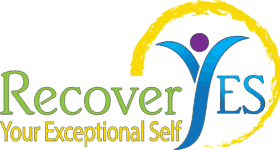Question: How does addiction hijack the brain?
Dr. Gala’s Response:
This is a delicious question. I’ll skip the lessons on brain anatomy and focus on the human experience.
In the brain, there are pleasure centers. In layman’s terms, those pleasure centers tell us, More of this. More of this.
For example when we’re hungry, a part of our brain has fired letting us know it’s time to eat. When we eat, the pleasure response acknowledges that we’ve met that need and says, Oh good. I feel much better now.
There is a chemical (dopamine) release in the brain that is linked with feeling relief. That’s a good thing unless it goes too far. Too much of a good thing is a bad thing.
With addiction, the craving for relief (think pleasure) is met by some substance or behavior. Repetition begins to form a distortion of the healthy pleasure/reward process in the brain. What may have satisfied the craving initially is no longer effective. More of whatever is being used to provide relief (sometimes referred to as medicating) is required to meet the demand.
This is why it’s so difficult in the early stages of recovery. The brain is screaming that its need isn’t being met. It literally feels like life or death. The most primitive part of the brain is running the show and it’s saying, You’re not giving me what I need. Without the addictive substance or behavior, the message is clear we’re going to die!
The decision-making part of the brain is no match for the primitive fight or flight part of the brain. When we’re in danger, there’s no time to stop and think about our options. We just run!
[responsive_video type=’youtube’ hide_related=’1′ hide_logo=’1′ hide_controls=’0′ hide_title=’1′ hide_fullscreen=’0′ autoplay=’0′]https://www.youtube.com/watch?v=NjnWPEihUUw&feature=youtu.be[/responsive_video]
Addiction recovery requires that we bring the decision-making part of the brain back online. When the primitive brain is using any tactic at its disposal to get us to medicate the unpleasant feeling, it’s the decision-making part of the brain that must step in and intervene.
Easier said than done!
It’s likely that you’ll need some support in the early stages of addiction recovery. If you check into a treatment center, sobriety will be forced on you. This environment is designed to help you gain enough perspective to be able to say, Wow, I’ve got to arrest this process. Accepting that it’s not going to be a lot of fun in the short-term is made easier with skilled professional help at your disposal.
The good news
All those old ways of finding relief or deriving pleasure are all still there. They’re just dormant. You’ve got to remove the artificial ways of meeting the call for relief from the brain so the original, healthy ways that your body was designed with start firing again.
There are natural supplements including amino acids that support this process making it much easier to get through the most challenging initial stages of addiction recovery minimizing withdrawal symptoms. The amino acids trigger the healthy response that is missing in the hijacked brain of the addict. They supplement and bridge the gap while your brain is relearning to generate the naturally occurring chemicals on its own.

It’s a fascinating study. Scientists have observed the brain as it reacts. Whether it’s drugs (or a substance) or a normally pleasurable situation, it’s eerily similar. Taking away the addictive substance or behavior will eventually force your brain and body to find relief in a healthy way as it was originally designed to do. It uses a process known as neural plasticity which is a topic I’ll leave for another post.
Recovery doesn’t happen overnight. The healing required must work its way through your system. It’s worth the wait. Rescuing the hijacked addicted brain should be the first priority for recovery.
